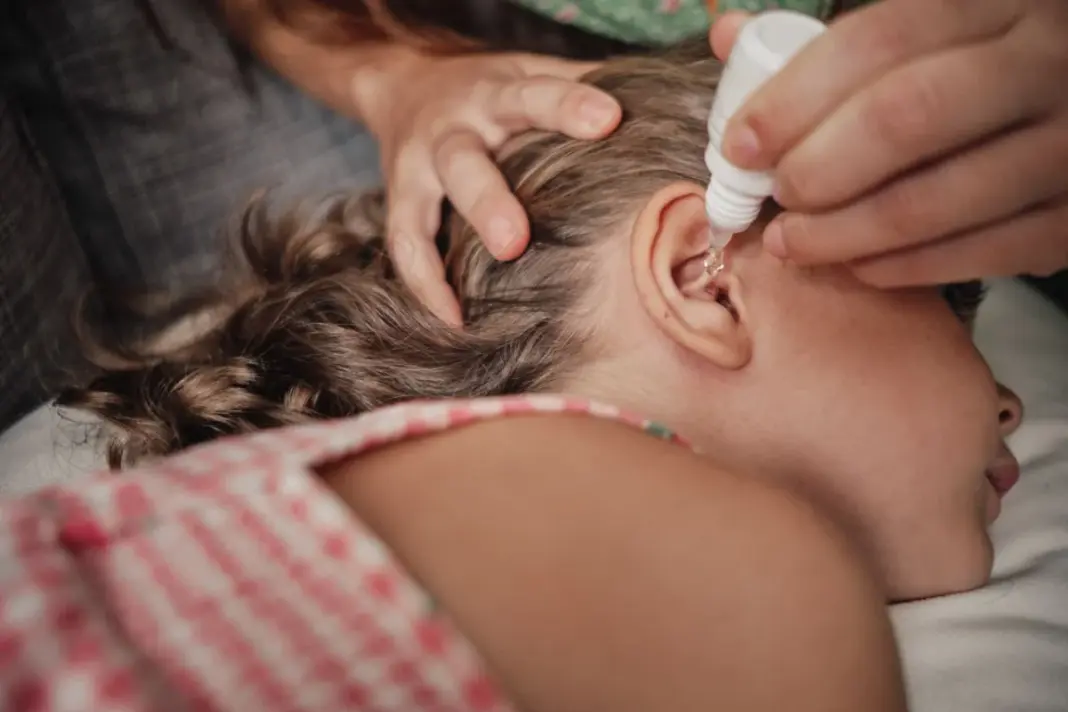A sudden trace of ear discharge in infants can spark worry, with studies showing nearly 60% experience infections by age one. While sometimes harmless, baby ear discharge causes infections, injuries, or congenital issues. Quick recognition and timely ear discharge treatment ensure better pediatric ear care tips for hearing, comfort, and overall infant health.
Understanding Ear Discharge in Infants
Ear discharge, medically called otorrhea, is any fluid coming from the ear. Ear discharge in infants, can be pus, blood, or watery fluid. It signals potential infections, injuries, or health issues.
Early recognition helps prevent serious outcomes. Paediatrician Dr Shivani Bansal advises keeping ears clean, avoiding foreign objects, and watching for symptoms to manage risks effectively.
Causes of Ear Discharge in Babies
Early signs often hide subtle changes parents might overlook. Understanding why fluid appears keeps the risk low.
- Infections: Conditions like otitis media or externa can cause fluid buildup.
- Blocked Ears: Earwax or foreign objects may obstruct and trap fluid.
- Injuries or Trauma: Scratches or diapering mishaps can cause minor bleeding.
- Underlying Health Conditions: Congenital disabilities or immune deficiencies increase vulnerability.
Common Symptoms Accompanying Ear Discharge
Small changes in baby habits often signal larger problems. Recognising symptoms early is key.
DON'T MISS
- Mood changes, irritability, or frequent crying.
- Fever, ear tugging, or restless sleep.
- Bad odour or unusual fluid colour.
- Trouble hearing or delayed responses to sound.
When to Seek Immediate Medical Attention?
Immediate medical attention is necessary if ear discharge persists beyond two days or contains blood. High fever, swelling, redness, or pain around the ear should raise concern.
Parents must also act quickly if babies show signs of hearing loss, reduced responses to sound, or other systemic infection symptoms. Prompt consultation ensures safe and effective pediatric ear care.
Expert-Recommended Steps for Safe Management at Home
Sometimes, ear discharge in infants can be handled at home if managed correctly.
1. Clean gently with soft cloth, avoid cotton swabs.
2. Keep the ear dry, skip swimming or baths involving the ears.
3. Monitor for fever, irritability, or hearing changes.
4. Call the pediatrician if discharge lasts beyond two days, smells bad, or is bloody.
5. Stay current with vaccinations to prevent ear infections.
Preventive Measures to Reduce Risk
Keeping a baby’s ears clean and dry reduces the risk of infections. Regular vaccinations, including pneumococcal shots, protect against common causes. Avoiding second-hand smoke and allergens strengthens immunity.
Parents should also prevent inserting objects into the ear canal, as this practice often triggers irritation and increases the chances of ear infections.
Quick action and careful observation can keep infant ear health safe. Early steps and pediatric guidance lead to better outcomes to avoid ear discharge in infants.



